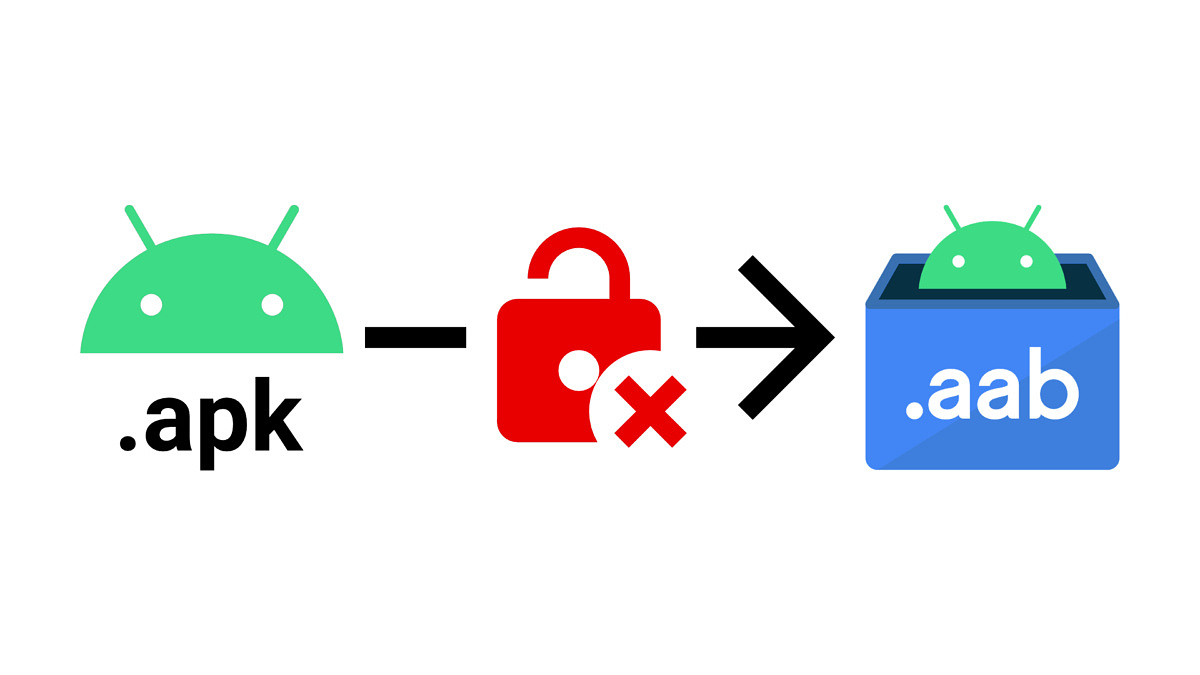Google is Killing Android APK Files: Here’s the Details about the Good & Bad behind it

We are going to cover below points in this blog:
- How is the Android App Bundles standard better than APK?
- Android App Bundles are more about Google and less about You
- Possibilities of things going Wrong for Third Party App Stores
The presence of APK files or Android Package file format has been marked around since 2008 when the Android operating system entered the market. It is undoubtedly an important file format for Android apps which are present on Google Play Store or another third- party provider App stores. One can even download apps in APK format from various websites and run them on any Android smartphone.
The Android ecosystem is largely supported by APK files, but Google is all set to kill it and replace it with Android app bundles (AAB). It was in 2018 when the search giant first spoke about AAB. In the latest announcement, Google said that Google Play will publish new apps with the Android App Bundle from August 2021. Any new apps starting from August 2021, will have AAB as the default publishing format.
Google has clarified that the AAB standard will only apply to new Android apps and said that “existing apps are currently excluded”. This is just like a temporary relief for the developers, but with time, all old and new android devices– will have to meet the app bundle requirements.
How is the Android App Bundles standard better than APK?
With Android App Bundles, your phone receives codes that are supported by your phone and used by you. This makes small apps and most importantly, it helps Google save money on bandwidth.
As multiple hardware and languages are available to Android OEMs, app developers are bound to avail support for each of them. An app developer has to bundle the support for multitude of combinations in one APK app, which means that your phone has a lot of unnecessary codes from every app you download, that results in bigger apps and occupy more storage space.
Users smartphones having a good internet connection won’t have any problem with AAB, while low-end Android phone users may have a bit low quality experience.
Google uses “shared APKs” with the Android App Bundle (AAB), while the Google Play Store introduces the exact APK required for your device without any additional information. If your device is based on the ARMv8 CPU architecture, with AAB, when downloading a particular app, Google will only provide package for ARM v8 and not the entire APK file generated with support for ARMv7, ARMv8, and Intel x86 architectures.
Android App Bundles are more about Google and less about You
It’s a fact that replacing the APK format with the AAB standard will empower Google with more control over the regulation of Android. AAB is open source, but on the other hand, app store that is owned by a third party must be able to process apps in the cloud and make them available to end users accordingly. Google can do this with ease as it has its own open source Bundle tool app that helps with this, but a third -party app store has to set up its own cloud infrastructure and pay for servers and app signing. App signing ensures that only the real publisher of the Android app can provide updates to the app and not some other random developer, and it also checks whether the financial data is not leaked from the apps.
“Play App Signing is required for app bundles, protects your app signature key from being lost by using Google’s secure infrastructure and offers the option of upgrading to a new, cryptographically stronger app signature key,” explains Google.
Possibilities of things going Wrong for Third Party App Stores
App bundles can definitely work well for the Google Play Store but for third-party app stores, it’s kind of overload of tasks and responsibility. As app stores have the access to the signature key, there is always a risk that fraudulent gamers or the government will force the app store owner to change a particular app. Google is working to solve this problem by offering an alternative which is known as a “code transparency” feature that developers can use to verify that users are getting what they want to provide. Though there will always be an uncertainty for other app stores.
It is like a magic wand for Google. With app bundles, Google would be able to save petabytes of bandwidth every day. Whereas the end user would see a maximum memory saving of 15%. Instead of a 100 MB app, it will be reduced to 85 MB with app bundles. It might not be a matter of concern for the end user, but developers have to grant Google a lot of control.
